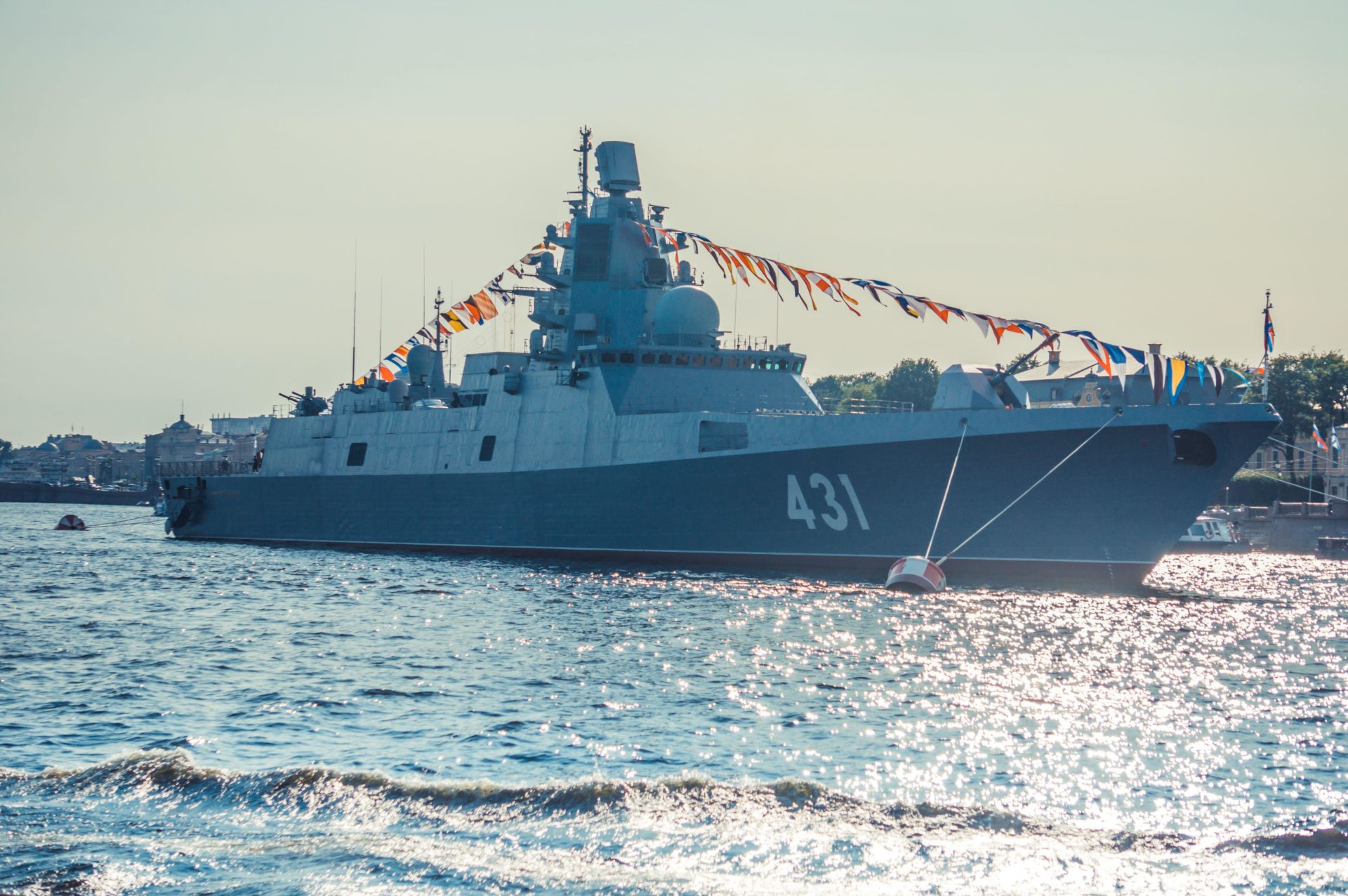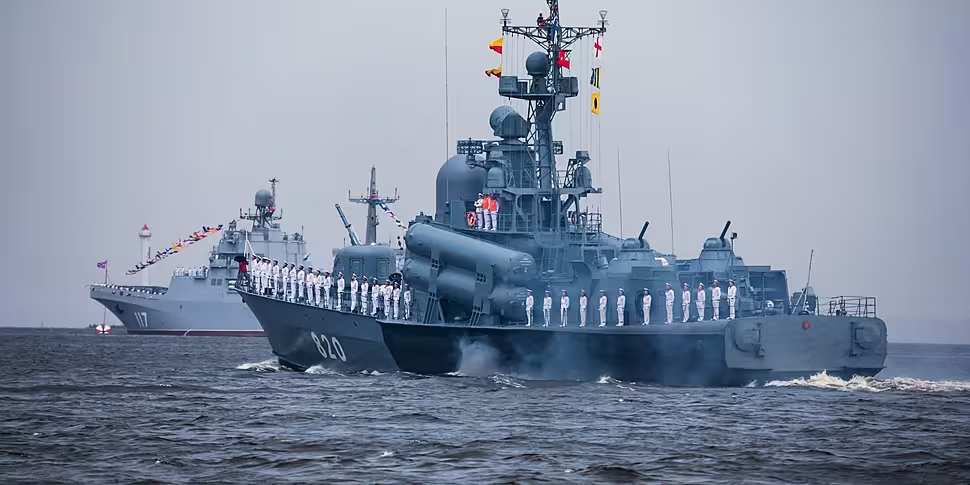Russian ships in Irish waters are testing the "weak points" of Europe’s defences, a security expert has said.
In recent days, the Defence Forces and Britain’s Royal Navy have been monitoring a number of Russian ships in Ireland’s exclusive economic zone.
Russian ships are not allowed to dock in EU or British ports and their presence is likely a refuelling mission - but it is also possible they are surveying Irish infrastructure.
“It was the fact that a number of them peeled away and appeared to loiter in the area,” security analyst Declan Power told Newstalk Breakfast.
“This is of concern because of the undersea cables that are in that general vicinity as well.
“So, an Irish Naval vessel was deployed to monitor [them].”
 2C496G1 ST.PETERSBURG, RUSSIA - JULY 23, 2019 - Russian warship with decorations at celebration of the Navy Day on Neva river
2C496G1 ST.PETERSBURG, RUSSIA - JULY 23, 2019 - Russian warship with decorations at celebration of the Navy Day on Neva riverMr Power said the Defence Forces were “extremely lucky” it had the manpower to keep an eye on the Russian vessels and the importance of the undersea cables could not be underestimated.
“They are responsible for a huge amount of commercial and other traffic between the United States and Europe,” he said.
“Damage to them would interfere with internet traffic of a personal nature, of a national nature, international nature and international commercial nature.
“The other aspect of this is that it is known, since the war in Ukraine, the Russians have been targeting and mapping external information of that nature - undersea cables, wind farms - anything of that nature that would be difficult to protect.”
Mr Power said Russia was highly unlikely to launch an attack on Ireland but was still a security threat.
“They’re seeking to see where the weak points are or the wobble spots within the European security architecture,” he said.
'Provocative weakness'
He described Ireland’s current defence policy as a “childish immature approach” and said Russia is taking advantage of it.
“There’s a defence theory called provocative weakness,” he said.
“Part of the reason we get the Russian attention, whether it’s in the air or in the sea, is because we are that juicy provocative target - we’re a wobble spot.”
He said Ireland should not join NATO but instead pursue “proper coordination co-operation and arrangements” with other European countries.
Last year, the Irish Government announced defence spending would rise from €1bn to €1.5bn annually by 2028.
The Department of Defence has been contacted for comment.
Main image: Modern Russian military naval battleships warships in the Baltic Sea. Image: Nikolay Tsuguliev / Alamy Stock Photo









